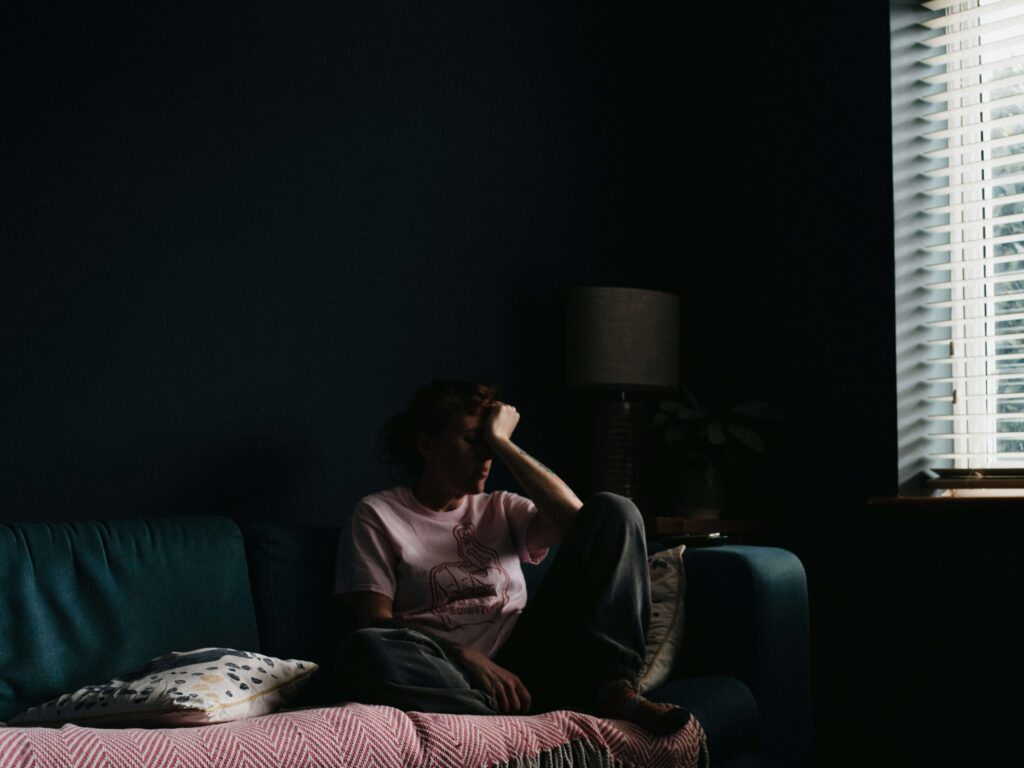In today’s hyper-connected world, it’s paradoxical that many of us feel increasingly lonely. Despite the ease of communication and the abundance of digital platforms, a sense of disconnection persists. Let’s delve into the complex relationship between technology and loneliness, exploring both its potential benefits and drawbacks.

A Modern Epidemic?
The notion of a “loneliness epidemic” has gained significant traction in recent years. Headlines and media reports often paint a grim picture of a society plagued by isolation and lack of meaningful connections. However, the reality is more nuanced, and the data is not as straightforward as it may seem.While some studies suggest an increase in self-reported loneliness, particularly among younger generations, others indicate a decline or stability in loneliness levels over time. It’s crucial to approach this topic with caution and avoid perpetuating unnecessary panic or exaggeration.
The Paradox of Connection
Technology: A Double-Edged Sword
On one hand, technology has revolutionized the way we communicate and connect with others. Social media platforms, instant messaging, and video calls have made it easier than ever to stay in touch with friends and family, regardless of physical distance. These digital tools have the potential to alleviate feelings of isolation and foster a sense of community.However, the flip side of this coin is that excessive or misguided use of technology can exacerbate feelings of loneliness. Constant exposure to curated online personas and highlight reels can breed feelings of inadequacy and social comparison. Additionally, the superficial nature of many online interactions may leave us craving deeper, more meaningful connections.
Finding the Right Balance
The key lies in striking a balance between online and offline interactions. While technology can be a valuable tool for maintaining connections, it should not be a complete substitute for face-to-face interactions and real-life experiences.Prioritizing quality time with loved ones, engaging in shared activities, and cultivating empathy and active listening can help foster genuine connections that transcend the digital realm.
Loneliness and Mental Health
Loneliness is not a diagnosable mental health condition, but it can have profound impacts on our emotional and physical well-being. Chronic loneliness has been linked to an increased risk of depression, anxiety, sleep disturbances, and even physical health issues like heart disease and weakened immune function.It’s essential to recognize that it’s a subjective experience, and its causes can vary from person to person. Life transitions, such as moving to a new city, starting a new job, or experiencing a relationship breakdown, can lead to feeling lonely. Additionally, certain personality traits, social anxiety, and mental health conditions like depression can contribute to a heightened sense of isolation.
Combating Loneliness: Strategies for Connection
Nurture Existing Relationships
One of the most effective ways to combat loneliness is to nurture and strengthen existing relationships. Make an effort to schedule regular catch-ups with friends and family, whether in person or through video calls. Engage in active listening, share your experiences, and show genuine interest in the lives of those around you.
Seek Out New Connections
Stepping out of your comfort zone and exploring new social circles can be daunting, but it can also be incredibly rewarding. Consider joining a club or group based on your interests, volunteering in your community, or attending local events. These activities not only provide opportunities for social interaction but also allow you to connect with like-minded individuals.
Practice Self-Care
While social connections are crucial, it’s equally important to prioritize self-care and cultivate a healthy relationship with yourself. Engage in activities that bring you joy and fulfillment, whether it’s pursuing a hobby, exercising, or simply taking time for quiet reflection. By nurturing your own well-being, you’ll be better equipped to build and maintain meaningful connections with others.
Seek Professional Support
If you’re struggling with persistent feelings of loneliness or related mental health concerns, don’t hesitate to seek professional support. Counseling or therapy can provide valuable tools and strategies for managing loneliness, building social skills, and addressing underlying issues that may contribute to feelings of isolation.
Loneliness: A Shared Experience
It’s important to remember that loneliness is a universal human experience, and you are not alone in your struggles. By fostering open conversations and destigmatizing the topic, we can create a more supportive and understanding society.Embrace vulnerability and reach out to those around you. You may be surprised to find that others share similar experiences and are willing to lend a listening ear or offer support.
FAQs
How can I tell if I’m experiencing chronic loneliness?
Chronic loneliness is characterized by persistent feelings of isolation and disconnection that last for an extended period. If you consistently feel unable to form meaningful connections, experience low self-worth, or struggle with social anxiety, it may be an indication of chronic loneliness. Seeking professional support can help you better understand and address these feelings.
How can I overcome the fear of reaching out to others?
Overcoming the fear of reaching out can be challenging, but it’s important to remember that many people share similar experiences and desires for connection. Start small by engaging in low-pressure social activities or joining online communities based on your interests. Over time, build up your confidence and social skills, and don’t be afraid to be vulnerable and authentic in your interactions. Remember, loneliness is a shared experience, and by supporting one another, we can create a more connected and compassionate society.
We recommend that you read Unveiling the Impacts of Social Media on Mental Health
